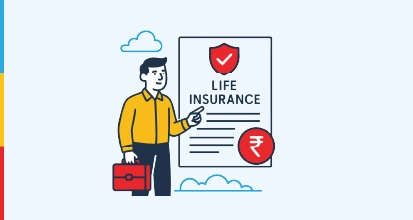What is the Death Claim Process?
The claim process requires the nominees to complete several steps to get an accurate and timely settlement. The insurance nominee must first inform the insurance company of the policyholder’s demise to obtain a claim form. Then, the claimant must fill out the form and obtain some documents as proof of the policyholder’s passing. Finally, the nominee must also provide the insurance company with medical and police reports if necessary.
After submitting the documents and claim form, the insurance company will verify the given documents. An investigation could be conducted by the insurance company if they think the death was suspicious in any way.
Once the verification process is finished, the insurance company can either approve or reject the insurance claim. If the claim is approved, the claim account will be transferred to the nominee, usually through electronic transfer. If the claim gets rejected, the nominee can either follow up with the insurance company, or approach either the Insurance Mediator, or the IRDAI to resolve the issue.
The death claim process is designed to ensure that beneficiaries receive their due benefits with no hassle on any end.
But, these days, death claims are processed very efficiently - the average claim settlement ratio in India, which hovers above 97%, is a testament to that. As an underinsured country, Indians need to familiarise themselves with the process of filing life insurance claims.
In addition to understanding the claims process, to make the most of the life insurance policy, it is also crucial that one understands the various benefits associated with it.
Look at the list below for the many benefits of funding a life insurance plan:
- Estate Planning: Life Insurance allows individuals to divide up their assets among the beneficiaries in the proportion they see fit.
- Replacing Income: In case of dependents, buying a life insurance can provide them with financial stability in the absence of insured.
- Paying Off Debt: The lump sum payout upon the maturity of a life insurance policy can be used to settle debts - therefore, the insured’s family can get a fresh financial start.
- Saying A Proper Goodbye: A life insurance payout can help the insured’s family arrange a dignified send-off without worrying about the budget at such a critical juncture.
- Can be a vehicle for investment: Certain insurance plans, such as ULIPs (Unit Linked Insurance Plans), allocate a portion of the premiums towards insurance coverage and invest the remainder in various investment funds, including equity, debt, or a combination thereof. ULIPs aim to facilitate wealth accumulation while establishing a financial safety net for one's family.
- Can be used as collateral for loans: Certain providers allow life insurance policies to be used as collateral for loans. Thus, life insurance has become a more versatile tool today. Its traditional function - to provide financial cover in tough times - remains central. But life insurance policies have started offering other benefits, too, like easier access to cash during crunch times.
- Tax savings: Under Section 80C, the insurance premiums qualify for tax deductions. Under Section 10(10D) of the Income Tax Act, the payouts upon the maturity of the insurance plan are also exempt from taxes.















